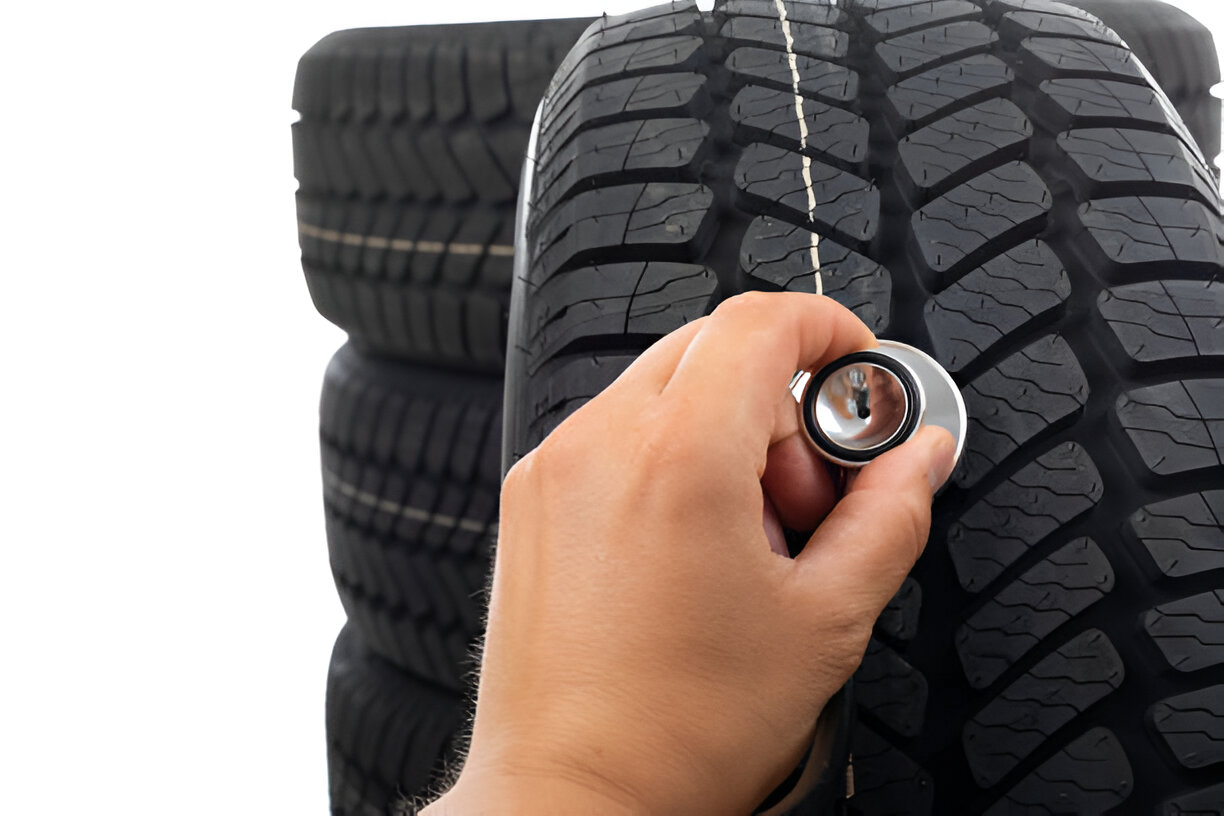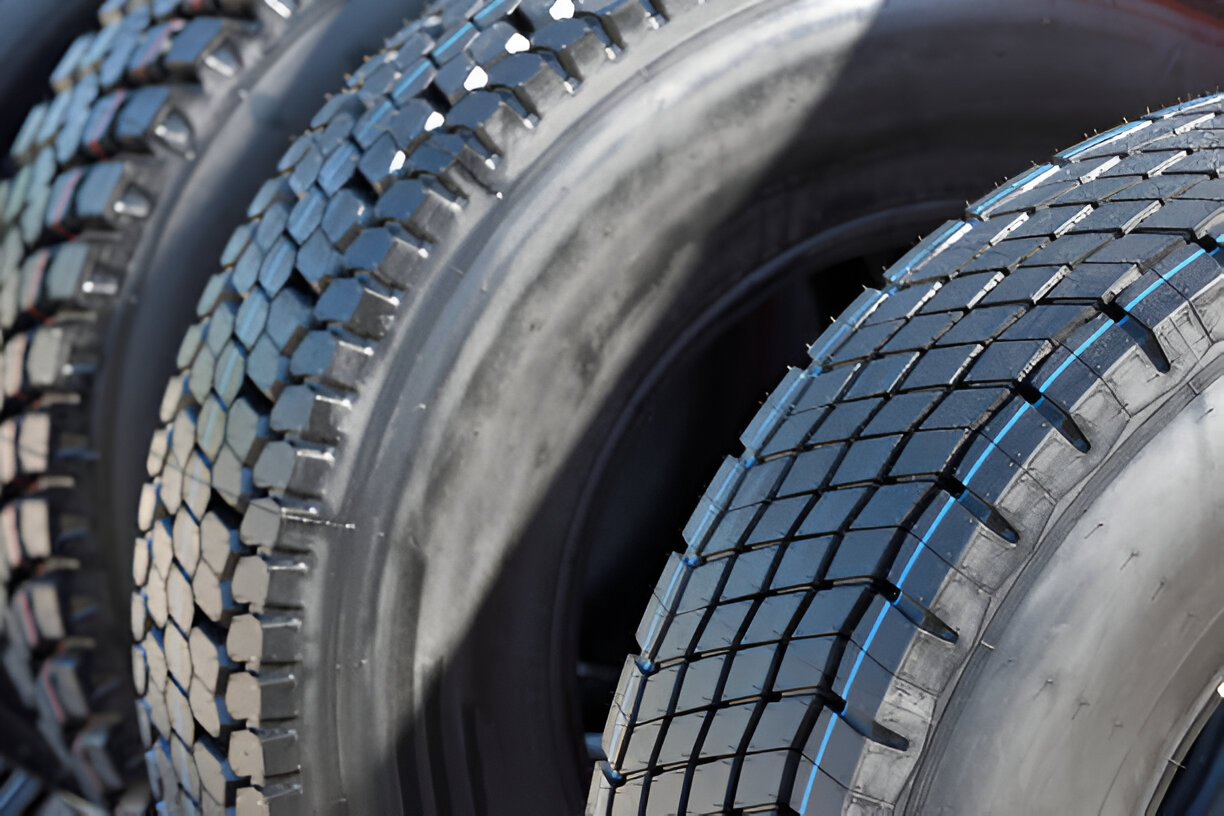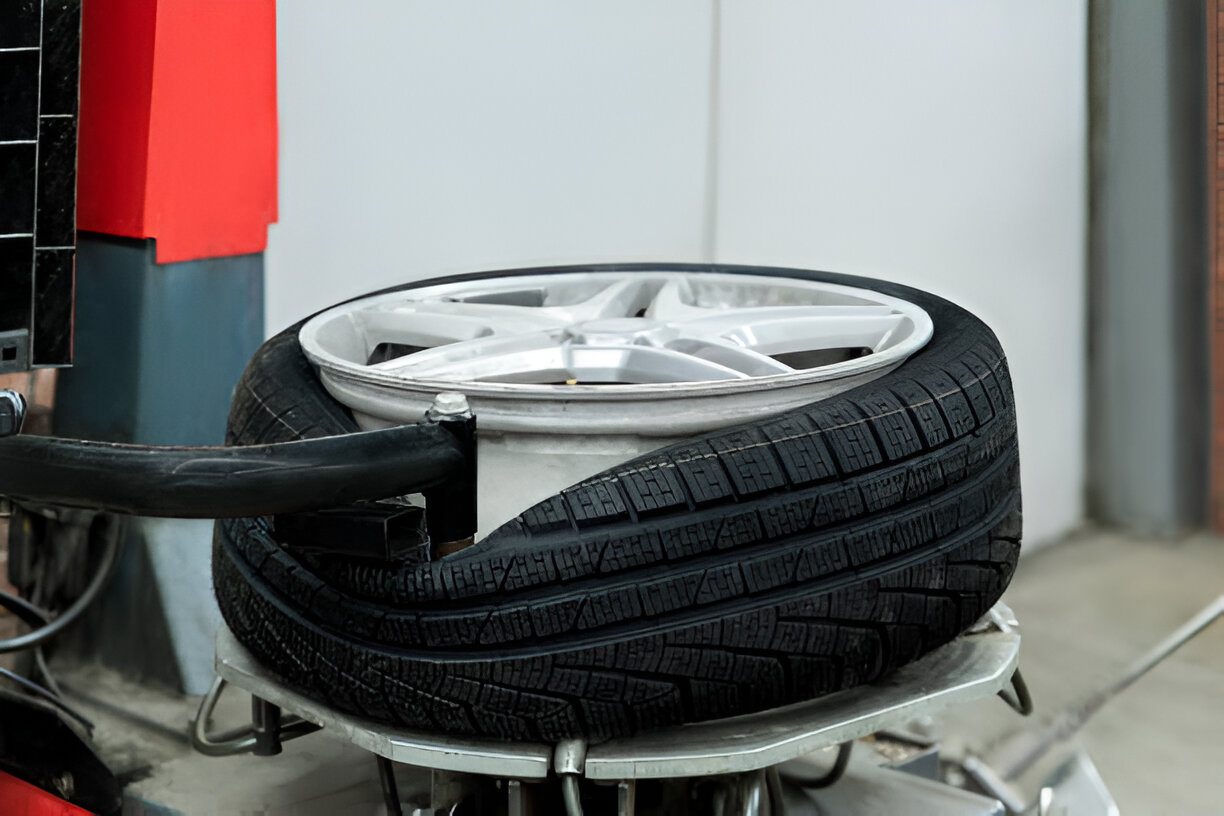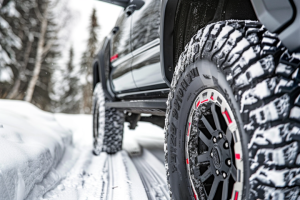Last Updated on October 1, 2024
Performance Tires for Trucks: A Comprehensive Guide
This guide covers the extensive selection of truck tires, their performance, and tips for selecting the best Tires Easy Truck recommends. Whether you are a truck owner, fleet manager, or truck enthusiast, this guide can help you decide on your vehicles’ capability, safety, and efficiency.
Purpose of the Guide
Tires play a critical role in a truck’s overall performance. From hauling heavy loads to navigating challenging terrains and weather conditions, the demands on truck tires are immense. Performance tires, designed with advanced technologies and materials, meet these demands, offering superior traction, handling, and durability compared to standard tires.
The market is saturated with options, making the selection process difficult. This guide simplifies that process, providing truck owners a clear pathway to selecting tires that meet their needs and enhance their driving experience. Whether navigating city streets, traversing rugged landscapes, or contending with seasonal weather conditions, understanding the nuances of performance tires can make a significant difference.

Overview of Performance Tires for Trucks
Performance truck tires are not a one-size-fits-all solution; they are specialized tires designed to enhance the vehicle’s handling, traction, and ability to stop. These tires are crafted using high-quality materials and innovative design techniques to improve performance under various driving conditions. Here’s a brief overview of what sets performance tires apart:
- Advanced Tread Designs: Performance tires feature sophisticated tread patterns that ensure better grip and water evacuation, reducing the risk of hydroplaning and improving handling in both dry and wet conditions.
- Specialty Rubber Compounds: These tires are made from unique rubber compounds that balance flexibility and stiffness, allowing them to maintain grip across various temperatures and road surfaces.
- Enhanced Sidewall Strength: The sidewalls of performance tires are reinforced to provide better cornering abilities and stability, especially under the heavy loads and high speeds trucks often encounter.
- Optimized for Conditions: Whether you’re driving all-season, summer, winter, or off-road, performance tires are tailored to excel in specific conditions, offering drivers peace of mind regardless of the driving scenario.
Understanding Tire Specifications
Here are the key tire specifications every truck owner should be familiar with:
- Load Rating: This indicates the maximum weight each tire can safely support. Trucks used in hauling and towing must have tires with an appropriate load rating to handle the demands of heavy loads.
- Speed Rating: The speed rating reflects the maximum speed at which the tire can safely carry a load under specified conditions. While trucks may not often operate at high speeds, a tire’s speed rating can also give insights into its overall performance characteristics, such as handling and traction.
- Tire Size: Tire size is denoted by numbers and letters that provide information on the tire’s width, aspect ratio, and diameter. Selecting the correct tire size is essential for maintaining the truck’s handling characteristics and ensuring the speedometer reads accurately.
- Tread Depth: Tread depth impacts a tire’s ability to evacuate water, grip the road, and its overall wear life. Understanding how tread depth affects performance and safety is vital, especially in adverse weather conditions.
- Sidewall Information: A tire’s sidewall contains valuable information, including the tire’s construction type, which can impact durability and performance, particularly under heavy load conditions.
Types of Performance Tires for Trucks: Navigating Through Seasons and Terrains
Various performance tires are available for trucks, featuring unique designs to meet the demands of different environments and weather conditions.

All-Season Tires
All-season tires are the jack-of-all-trades in the tire world, designed to provide reliable performance in a wide range of conditions, from dry roads to wet pavement and light snow. They are characterized by:
- Versatile Tread Patterns: Engineered to balance grip and water evacuation, ensuring safety across diverse driving conditions.
- Moderate Tread Depths: Enhances the tire’s lifespan while maintaining adequate traction throughout the year.
- Material Composition: All-season tires are made from a rubber compound that remains flexible in various temperatures, contributing to consistent performance.
All-season performance tires are an excellent choice for truck owners who drive in regions with mild weather variations and want a tire that can handle most conditions without needing seasonal changes.
Summer Tires
Summer tires are optimized for performance in warm conditions, offering enhanced traction, handling, and stability on dry and wet roads. Their key features include:
- Soft Rubber Compounds: Allows for better grip on warm pavements, improving braking and cornering capabilities.
- Shallow Tread Patterns: Designed to increase contact with the road for superior handling and responsiveness.
- Specialized Grooves: These grooves help evacuate water to prevent hydroplaning during heavy rains.
Summer tires are ideal for truck drivers in hot climates or those seeking maximum performance during the warmer months.
Winter Tires
Winter tires are essential for cold, snowy, or icy trucks. They are designed to offer unparalleled traction and safety when temperatures drop below 45°F (7°C). Features include:
- Deep Tread Patterns and Sipes: These create additional biting edges to grip snow and ice.
- Flexible Rubber Compounds: Winter tires remain soft and pliable in freezing temperatures, ensuring better traction than all-season or summer tires.
- Snowflake Symbol: This symbol is legally recognized in some regions and indicates that the tire meets specific snow traction performance requirements.
For truck owners facing severe winter conditions, investing in winter-performance tires is critical for maintaining safety and mobility.
Off-Road Tires
Off-road tires are designed for trucks that frequently navigate through mud, gravel, sand, and rugged terrains. These tires stand out for their:
- Aggressive Tread Patterns: Deep, wide treads allow superior traction on loose or uneven surfaces.
- Reinforced Sidewalls: This provides extra protection against punctures and improves load-carrying capacity.
- Durability: Off-road tires are built to withstand the harsh conditions of off-road driving, including rocks, branches, and other obstacles.
Truck owners who venture off the beaten path or engage in activities like off-road adventures, construction, or farming will find off-road performance tires indispensable for their durability and traction.
Selecting the Right Performance Tires for Your Truck: A Comprehensive Guide
This segment of our guide aims to help you select the right performance tires, assess your needs, understand tire size and fitment, and balance performance with budget considerations.
Assessing Your Needs
The first step in selecting the correct performance tires is to assess your driving needs and conditions. Consider the following aspects:
- Driving Conditions: Evaluate the typical weather conditions and terrains you encounter. Are you driving on wet, dry, or snowy roads? Do you frequently navigate off-road terrains or stick to highways and city streets?
- Vehicle Use: Consider how you use your truck. Is it for daily commuting, long haul, towing, or off-road adventures? The intensity and nature of your use will dictate the type of performance tire that best suits your needs.
- Performance Expectations: Define what you expect from your tires regarding handling, stability, traction, and fuel efficiency. Each performance tire category offers different benefits that cater to specific performance expectations.
Tire Size and Fitment
Selecting the correct tire size and ensuring proper fitment is crucial for maintaining the vehicle’s handling, safety, and fuel efficiency. Here’s how to navigate tire size and fitment:
- Refer to the Owner’s Manual: Your truck’s owner’s manual will list the recommended tire sizes compatible with your vehicle. Sticking to these recommendations ensures the tires fit well and perform as expected.
- Understand Tire Size Notations: Tire sizes are indicated by numbers and letters (e.g., 265/70R17). This notation provides information about the tire’s width, aspect ratio, and diameter. Familiarize yourself with this notation to choose tires that fit your truck perfectly.
- Consult with Experts: If you’re considering a tire size that differs from the manufacturer’s recommendation or have customized your truck, consult with tire experts. They can provide valuable advice on the implications of changing tire sizes and help you find a size that matches your performance needs without compromising safety.
Performance vs. Budget Considerations
Balancing the need for high performance with budget constraints is a common challenge. Here are some tips to navigate this balance:
- Prioritize Key Features: Based on your needs assessment, determine the most critical tire features. Prioritizing can help you find a tire that meets your most critical requirements without overspending on unnecessary features.
- Long-Term Value: Consider the long-term value of investing in higher-quality performance tires. While they may have a higher upfront cost, they often offer better durability, performance, and fuel efficiency, leading to savings over time.
- Shop Around: Take the time to compare prices and look for deals from reputable dealers. Sometimes, you can find high-quality performance tires at a discount, especially during sales events or when newer models are released.
Features of High-Performance Tires: Enhancing Your Truck’s Capabilities
This section of our comprehensive guide delves into the critical features that define high-performance tires: advanced tread designs, specialty rubber compounds, and reinforced sidewalls.
Advanced Tread Designs
High-performance tires are equipped with advanced tread designs that offer Optimized Grip to maximize road contact, Water Evacuation to reduce the risk of hydroplaning in wet conditions, and Reduced Road Noise, which contributes to a quieter and smoother ride.
Specialty Rubber Compounds
High-performance tires are engineered using specialty rubber compounds that offer Temperature Versatility, which results in consistent performance across hot or cold roads; Enhanced Durability, which resists wear and tear even under aggressive driving conditions; and Adaptability to Conditions such as wet weather or extreme temperatures.
Reinforced Sidewalls
Sidewall construction is a critical aspect that influences a tire’s handling and stability, especially during high-load or sharp turns. High-performance tires often feature reinforced sidewalls with Improved Handling, which reduces tire flex during cornering; Increased Load-Carrying Capacity to better withstand the stresses of heavy loads; and Enhanced Durability, which protects against sidewall damage from impacts and abrasions.
Benefits of Performance Tires: Elevating Your Truck’s Driving Experience
One of the primary benefits of performance tires is their ability to improve vehicle handling and stability. As detailed in the previous section, this is achieved through a combination of advanced tread designs, specialty rubber compounds, and reinforced sidewalls, which work together to offer:
- Precision Steering: This is for more accurate steering inputs, allowing for sharper turn-in and more precise handling, which is particularly noticeable in high-speed maneuvers or emergencies.
- Reduced Body Roll: Performance tires’ stiffer sidewalls help minimize body roll during cornering, providing a more stable and controlled driving experience, especially when carrying heavy loads or navigating tight turns.
- Enhanced Grip: The specialized tread patterns and rubber compounds used in performance tires increase the tire’s contact with the road, offering superior grip and reducing the likelihood of slippage in dry and wet conditions.
Collectively, these features ensure that trucks with performance tires exhibit better-handling characteristics, contributing to safer and more predictable driving.
Increased Fuel Efficiency
While performance tires are primarily designed for improved handling and traction, they also offer benefits in terms of fuel efficiency. This is achieved through:
- Reduced Rolling Resistance: Advanced materials and tread designs reduce the energy needed to keep the tires rolling, decreasing fuel consumption.
- Optimized Weight Distribution: Performance tires’ enhanced stability and grip can lead to more efficient power transfer from the engine to the road, further contributing to fuel savings.
- Longevity: Performance tires’ durable construction means they can maintain their efficiency-enhancing characteristics over an extended period, reducing the need for frequent replacements and contributing to overall fuel economy.
Installation and Maintenance of Performance Tires
The final steps to maximizing the benefits of performance tires on your truck involve proper installation and diligent maintenance. This essential part of our comprehensive guide offers insights into professional installation tips, routine maintenance practices for longevity, and guidelines for monitoring tire wear and knowing when to replace your tires.

Professional Installation Tips
While you may be tempted to do a DIY performance tire installation, be advised that a professional installation is highly recommended for several reasons.
Tire professionals use advanced equipment to ensure that tires are mounted and balanced correctly, reducing the risk of vibration, uneven wear, and premature tire failure. The installer can also inspect the rims and tire sensors (if applicable) for damage and compatibility and ensure that new tires are fitted properly. Most importantly, the tire technician will inflate the tires to the vehicle manufacturer’s recommended pressure.
Choosing a reputable tire shop or service center for tire installation guarantees that these critical steps are executed precisely, safeguarding your investment and maximizing the performance benefits.
Routine Maintenance for Longevity
To extend the life of your performance tires and maintain their high level of performance, routine maintenance is critical:
- Regular Inspections: Check your tires for signs of wear, damage, or foreign objects lodged in the tread. Early detection of issues can prevent further damage and ensure your safety on the road.
- Tire Rotation: Follow the tire rotation schedule recommended by the tire manufacturer or your vehicle’s manual. Rotating tires helps achieve uniform wear, extends their service life, and maintains consistent performance across all four wheels.
- Maintain Proper Inflation: Tire pressure should be checked monthly and adjusted according to the manufacturer’s specifications. Proper inflation is essential for optimizing tire performance, reducing wear, and improving fuel economy.
Engaging in these maintenance practices not only prolongs the life of your tires but also contributes to your truck’s safety and efficiency.
Monitoring Tire Wear and When to Replace
Understanding when to replace your performance tires is crucial for maintaining the safety and performance of your truck:
- Tread Depth: Most jurisdictions’ legal minimum tread depth is 2/32 of an inch. However, replacing tires before they reach this minimum can prevent a decrease in performance, especially in wet conditions.
- Wear Indicators: Modern tires feature built-in wear indicators that become visibly flush with the tread once it wears down to the minimum legal depth, signaling that it’s time for replacement.
- Age: Even if tires have adequate tread depth, aging can affect their performance due to the degradation of rubber compounds over time. Most manufacturers recommend replacing tires every six to ten years, regardless of tread wear.
- Signs of Damage: Any signs of sidewall bulges, deep cuts, or punctures that cannot be repaired safely mean it’s time for new tires.
By adhering to these guidelines, truck owners can ensure that their performance tires are replaced appropriately, maintaining the vehicle’s safety, performance, and efficiency.
Safety Considerations for Truck Tires: Prioritizing Road Safety
Understanding and implementing strategies to avoid common tire-related hazards will significantly enhance your truck’s safety on the road. Critical aspects of vehicle safety include traction, breaking performance, load-carrying capacity, handling, and stability.
Being proactive in tire maintenance and awareness can help in avoiding common tire-related hazards:
- Regular Tire Inspections: Conduct thorough inspections of your tires regularly for signs of wear, damage, or underinflation. Early detection of tread wear, sidewall damage, or punctures can prevent sudden tire failures.
- Maintain Proper Tire Pressure: Underinflated or overinflated tires can lead to uneven wear, reduced traction, and increased risk of blowouts. Adjust tire pressure monthly and before long trips to the manufacturer’s recommended levels.
- Monitor Tread Depth: Ensure your tires have sufficient tread depth to maintain proper grip on the road. Tires should be replaced before the tread wears down to the legal minimum depth to prevent hydroplaning and maintain adequate braking performance.
- Avoid Overloading: Adhere to the tire’s load rating and your vehicle’s maximum load capacity to prevent overloading, which can cause excessive heat buildup and tire failure.
- Seasonal Tire Considerations: For regions with severe winter weather, consider using winter tires to improve traction on snow and ice. Similarly, ensure your tires are suited to the demands of any off-road driving or heavy-duty applications.
Ultimately, the condition and performance of your tires are foundational to your truck’s safety, reliability, and performance, underscoring the importance of making informed tire choices and adhering to best maintenance practices.
Brand and Product Reviews: Navigating the Best Performance Tire Brands for Trucks
This section of our comprehensive guide reviews top-performance tire brands for trucks, offering a comparative analysis of popular models to aid truck owners in making informed decisions. Understanding each brand’s strengths and offerings and how their flagship models stack up against each other can significantly impact your truck’s handling, fuel economy, and overall performance on the road.
Top Performance Tire Brands for Trucks
Several brands stand out in the performance tire market for trucks, known for their innovation, quality, and reliability. Here are some of the top contenders:
- Michelin: Renowned for its long-lasting tires, Michelin offers a range of performance tires that provide excellent grip, fuel efficiency, and wear life. Their commitment to safety and performance makes them a favored choice among truck owners.
- Bridgestone: Bridgestone’s performance tires are designed with cutting-edge technology for superior handling and stability in various driving conditions. They are well-regarded for their durability and high-quality construction.
- Goodyear: With a strong emphasis on innovation, Goodyear performance tires excel in wet and dry traction and offer robust durability. Their tires are often chosen for their balance of performance and comfort.
- Continental: Known for their precise handling and exceptional braking capabilities, Continental’s performance tires are ideal for truck owners looking for a responsive driving experience and safety in all weather conditions.
- Pirelli: Pirelli tires are synonymous with high performance, offering exceptional handling, traction, and comfort. Their performance tires are popular for those seeking a sporty driving experience without compromising safety.
Cost Analysis of Performance Tires: Balancing Initial Investment and Long-Term Savings
Investing in truck performance tires is often perceived as a significant upfront cost, especially compared to standard tires. However, a comprehensive cost analysis reveals that the initial investment in quality performance tires can lead to substantial long-term savings. This detailed examination aims to show the balance between the initial outlay and the long-term financial benefits, emphasizing the value of quality tires. Understanding these aspects can help truck owners make informed decisions that optimize both performance and cost efficiency over the life of their vehicles.

Initial Investment vs. Long-Term Savings
The purchase price of performance tires is typically higher than that of standard tires due to the advanced materials, technology, and engineering involved in their production. However, the long-term savings can be significant, making them a worthwhile investment:
- Durability and Tread Life: Performance tires often have a longer tread life due to the superior materials and construction techniques. This extended wear means they must be replaced less frequently, reducing the overall cost per mile.
- Fuel Efficiency: Many performance tires are designed to lower rolling resistance, which can improve fuel efficiency. Over the tires’ lifespan can result in considerable fuel savings, offsetting the higher initial cost.
- Reduced Wear on Vehicle Components: The enhanced grip and stability of performance tires can lead to less strain on vehicle components such as brakes and suspension systems, potentially reducing maintenance and repair costs.
Understanding the Value of Quality Tires
The value of investing in quality performance tires extends beyond monetary savings, encompassing several vital aspects that contribute to the overall cost-effectiveness:
- Safety: Performance tires offer improved handling, traction, and braking performance, which can contribute to safer driving conditions. The potential reduction in accidents and related costs cannot be understated.
- Performance: The enhanced driving experience of performance tires, including better handling, stability, and responsiveness, adds value for drivers prioritizing vehicle performance.
- Environmental Impact: With a focus on sustainability, many performance tires are designed to be eco-friendly, reducing fuel consumption and CO2 emissions. This ecological consideration adds another dimension to the tire’s overall value.
When evaluating the cost of performance tires, it’s crucial to consider the immediate financial outlay and the broader implications, including safety, vehicle performance, environmental impact, and the potential for long-term savings.
Conclusion: Maximizing Truck Performance with the Right Tires
As we conclude our comprehensive guide on truck performance tires, reflecting on the insights and knowledge shared across the various sections is essential. From understanding the basics of tire specifications and the diverse types available to recognize the importance of proper installation maintenance and the undeniable benefits of high-quality performance tires, the guide has aimed to equip truck owners with the information needed to make informed decisions.
Performance tires are crucial to your truck’s safety, efficiency, and driving experience. By prioritizing advanced tread designs, specialty rubber compounds, and reinforced sidewalls, these tires offer improved handling and stability, enhanced traction in varied conditions, and the potential for increased fuel efficiency. These features contribute to a safer driving experience and ensure that your truck can meet the demands of any driving environment, from bustling city streets to challenging off-road terrains.
Explore Our Selection and Find the Perfect Tires for Your Truck Today!
FAQs
Q1: What makes performance tires different from standard tires?
A1: Performance tires are designed with advanced materials and technologies to enhance grip, handling, stability, and durability under various driving conditions. They often feature specialized tread patterns, superior rubber compounds, and reinforced sidewalls for improved traction, braking, and cornering performance.
Q2: Can performance tires improve fuel efficiency?
A2: Yes, many performance tires are engineered to reduce rolling resistance, which can improve fuel efficiency. By minimizing the energy lost as the tire rolls, performance tires help conserve fuel, making your truck more efficient over long distances.
Q3: Are performance tires suitable for all seasons?
A3: Performance tires designed for specific seasons—such as summer and winter tires—offer optimized performance in conditions typical of those seasons. All-season performance tires are also available, providing a good balance of performance across various conditions, including mild winter weather.
Q4: How often should performance tires be replaced?
A4: The lifespan of performance tires can vary based on driving habits, conditions, and tire maintenance. Monitoring tread depth and looking for signs of wear or damage is essential. Generally, tires should be replaced when the tread depth reaches 2/32 of an inch or if there are signs of significant wear or damage.
Q5: Can I use performance tires for off-road driving?
A5: While some performance tires are designed for all-terrain use, including light off-road driving, they may not be suitable for extreme off-road conditions. For dedicated off-road driving, specialized off-road or all-terrain tires are recommended for their deep tread patterns and rugged construction.
Q6: Do performance tires require special maintenance?
A6: Performance tires benefit from the same maintenance practices as standard tires, including regular pressure checks, rotations, and alignments. However, due to their specialized designs and materials, adhering to these maintenance practices is even more crucial to ensure they deliver the best performance and longevity.
Q7: Are there eco-friendly performance tires available?
A7: The tire industry increasingly focuses on sustainability, with many manufacturers developing eco-friendly performance tires. These tires use sustainable materials and manufacturing processes that reduce environmental impact without compromising performance.
Q8: How do I choose the right performance tires for my truck?
A8: Choosing the correct performance tires depends on your driving needs, conditions, and expectations. Consider factors such as the types of terrain you drive on, weather conditions, load capacity, and your performance preferences. Consulting with tire professionals or using online resources from reputable tire retailers can also help make an informed decision.
Q9: Is it worth investing in performance tires for a light-duty truck?
A9: Yes, even light-duty trucks can benefit significantly from performance tires, especially if you prioritize handling, safety, and efficiency. Performance tires can enhance the driving experience by offering better traction, stability, and comfort, making them a worthwhile investment for any truck owner.
Q10: Can performance tires affect the resale value of my truck?
A10: While the impact on resale value can vary, having high-quality tires on your truck can attract potential buyers, signaling that the vehicle has been well-maintained and equipped for optimal performance and safety.











 English
English Français
Français Español
Español